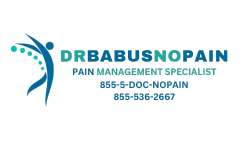Overview of Degenerative Disc Disease
Degenerative disc disease is a common spinal condition characterized by the gradual deterioration of the intervertebral discs that cushion the vertebrae in the spine. Despite its name, it's not always a true "disease" but rather a natural part of aging for many people. As these discs lose water content and elasticity over time, they can become thinner and less effective at shock absorption and flexibility. Symptoms of degenerative disc disease often include chronic low back pain and stiffness, which can sometimes radiate to the neck or limbs. Activities like bending, lifting, or twisting may worsen the discomfort. Management typically focuses on pain relief and improving function. Conservative treatments may include physical therapy, pain medications, and lifestyle modifications. In more severe cases, surgery may be considered. It's important to note that while degenerative disc disease is a common cause of back pain, it doesn't always lead to significant disability, and many individuals can manage their symptoms effectively with non-invasive measures.
Symptoms of Degenerative Disc Disease
Degenerative disc disease typically causes chronic lower back pain and stiffness, often worsened by activities like bending or sitting for extended periods. Pain may radiate to the neck or limbs. The condition results from age-related wear and tear on spinal discs, leading to reduced flexibility and shock absorption. Symptoms can vary in intensity and may include occasional numbness or tingling. While degenerative disc disease is common, it doesn't always cause significant disability, and many individuals manage their symptoms effectively with conservative treatments, such as physical therapy and pain management strategies.
Causes of Degenerative Disc Disease
The most common cause of degenerative disc disease is the natural aging process. As people grow older, the intervertebral discs in the spine lose water content and elasticity, making them thinner and less effective at shock absorption and flexibility. This age-related degeneration can lead to disc height reduction and may result in bone spurs or herniations. Additionally, genetics, injuries, and certain lifestyle factors like smoking can contribute to the development of degenerative disc disease. It's a prevalent condition, typically affecting the lumbar and cervical spine, and can lead to chronic low back or neck pain, often exacerbated by movement and activity.
Treatment Options for Degenerative Disc Disease
Treatment for degenerative disc disease aims to manage pain and improve function. Conservative approaches often prove effective, including physical therapy to strengthen core muscles and improve posture, which can alleviate pressure on the discs. Non-prescription pain relievers and muscle relaxants may help manage symptoms. Epidural steroid injections provide targeted pain relief. Lifestyle modifications are essential, such as maintaining a healthy weight and avoiding activities that exacerbate symptoms. Spinal decompression therapy can provide relief for some individuals. In cases of severe or unresponsive pain, surgical interventions like spinal fusion or artificial disc replacement may be considered to stabilize the spine and alleviate discomfort. Personalized treatment plans are crucial, taking into account the location and severity of disc degeneration, overall health, and patient preferences. Consulting a healthcare provider helps determine the most appropriate approach for each individual.
